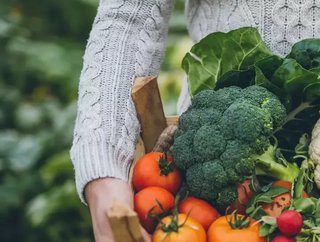How is Lidl championing product sustainability assurance?

Product sustainability assurance is the next critical step for supermarket chains. Despite working on this in the past with initiatives like the Red Tractor Assurance scheme, consumers require more actions to confirm that food products are sustainably sourced.
Lidl is making a huge commitment to adhere to the Linking Environment And Farming (LEAF) Marque environmental assurance scheme, which will confine its products to robust sustainability certification, ensuring the company supports more sustainable, nature-based farming practices to source quality food products.
LEAF promotes sustainable food supply and consumption
LEAF Marque is a global initiative that is run by the global farming organisation to recognised sustainable farming operations. The group’s vision for the future is a global farming and food system that delivers climate positive action, encourage food chain resilience, better global health and well-being and promote diversity of food supply.
‘Sustainability has been core to the Lidl business model for many years. We firmly believe it is our responsibility, through innovation, investment, and active leadership, to build a bright, sustainable future – for our business, our farmer suppliers, the people we interact with and our planet’, says Amali Bunter, Head of Responsible Sourcing and Ethical Trade at Lidl GB.
‘New patterns of production and consumption are emerging across Great Britain, reflecting global geopolitical uncertainty, resource availability and consumer preferences. As a leading food retailer, we recognise the demand we place on our agricultural resources and the influence we have on our suppliers’ practices’.
The partnership drives Lidl’s sustainability strategy
According to Bunter, the partnership with LEAF will build upon Lidl GB’s sustainability strategy, which prolongs its commitment to maintaining great supplier relationships across the globe, while supporting human rights and ethical trading practices — ensuring fair trade prices for goods and animal welfare — all to create a more transparent supply chain.
The LEAF Marque scheme also supports Lidl GB’s commitment to increase its fresh fruit and veg sales by 35% over the next four years, and increase total healthy goods sales by 85% by 2025.
Alongside its strategy to ‘Make Good Food Accessible to Everyone’, Lidl GB has also outlined its plans regarding its carbon emissions and how it will reduce the carbon footprint of its entire supply chain. Since 2017, all of the company’s GB stores have adhered to ISO:50001 standards, meaning the supermarket chain is capable of managing its energy efficiency. The company continues to work towards carbon neutrality with a target of 25% carbon emissions reduction across its logistics by 2028.
• Join global business leaders and sustainability experts taking meaningful action at Sustainability LIVE, held at Tobacco Dock, London, 23-24 February 2022. Register to attend today! Click here to learn more.






